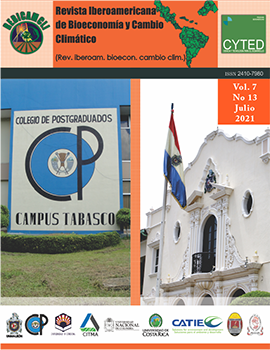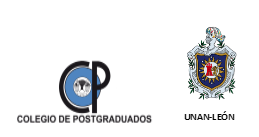Effect of three microbial consortia in corn (Zea mays L.) in Villaflores, Chiapas
DOI:
https://doi.org/10.5377/ribcc.v7i13.11424Keywords:
Corn, Microorganisms, Growth, BiomassAbstract
Due to the high costs of external inputs and the increasing degradation of the soils of the Frailesca region, Chiapas, there is low productivity in corn systems without the use of such inputs. Mountain microorganisms function as inocula of microbial consortia in crops and are presented as an alternative to improve soil conditions. However, the direct effects of these consortia on maize cultivation are unknown. In this sense, an experimental design of Latin 4x4 box was established to evaluate the effect of three consortiums of mountain microorganisms on the growth variables and biomass production in a maize production system under agroecological management in Villaflores, Chiapas, during a productive cycle spring-summer of 2020. Significant differences were found in the values of the stem diameter variable and the production of fresh and dry biomass. With the consortium called MM3, higher average values were obtained when comparing with the other consortia.
Downloads
892
HTML (Español (España)) 0
Published
How to Cite
License
Copyright (c) 2021 Ibero-American Journal of Bioeconomy and Climate Change

This work is licensed under a Creative Commons Attribution-NonCommercial-ShareAlike 4.0 International License.
Copyright © Rev. iberoam. bioecon. climate change (Graduate School and UNAN-León, School of Agricultural and Veterinary Sciences / Department of Agroecology / Center for Research in Bioeconomy and Climate Cahnge (CRByCC).







